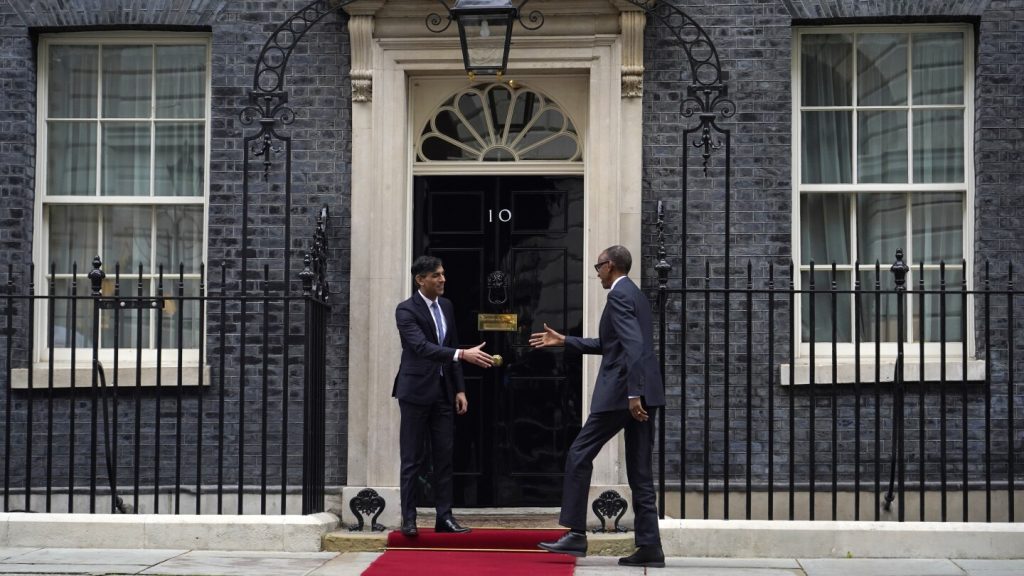The British government is on the verge of passing a bill that would allow the deportation of asylum-seekers to Rwanda as part of Prime Minister Rishi Sunak’s efforts to “stop the boats” bringing unauthorized migrants to the U.K. This plan has faced legal challenges and opposition from human rights groups, refugee charities, and legal experts due to concerns about the safety of Rwanda as a destination for asylum-seekers. Despite these challenges, the government is determined to push forward with the plan, citing the need to disrupt human-smuggling gangs and save lives of those being exploited.
The Rwanda plan, which was signed two years ago but has not yet been implemented, has been met with resistance from the U.K. Supreme Court, which declared it illegal due to concerns about the safety of asylum-seekers in Rwanda. In response to this ruling, the British government signed a treaty with Rwanda to strengthen protections for migrants, allowing them to move forward with the legislation that declares Rwanda a safe destination. However, critics argue that the Safety of Rwanda Bill is fundamentally incompatible with the U.K.’s human rights obligations and could lead to violations of international law.
The passage of the Safety of Rwanda Bill has been a contentious issue in Parliament, with the House of Lords attempting to water down the legislation and ensure it complies with international law. Despite these efforts, the House of Commons, where Sunak’s Conservatives hold a majority, has rejected the amendments proposed by the Lords. This back-and-forth process, known as parliamentary ping pong, could continue for several days, but ultimately, the elected Commons has the power to overrule the unelected Lords and pass the bill into law.
Once the bill becomes law, it may still take weeks before deportation flights to Rwanda can commence, as individuals chosen for removal are likely to lodge legal appeals. The British government is under pressure to reduce the number of people arriving in the U.K. in small boats, with Sunak making this a key issue ahead of an upcoming election. Despite opposition from the Labour Party, which leads in opinion polls, the government is considering similar agreements with other countries if the Rwanda plan proves successful, as reported by The Times of London.
Labour Party immigration spokesman Stephen Kinnock has criticized the Rwanda plan as “doomed to fail,” highlighting the continued arrival of boats and the growth of a backlog of asylum-seekers. He argues that the government’s approach is ineffective, unworkable, unaffordable, and unlawful. As the debate over the Safety of Rwanda Bill continues, it remains to be seen how the U.K. government will address the challenges and concerns raised by critics of its deportation plan.


